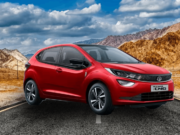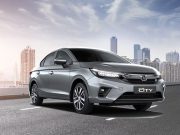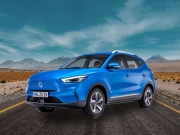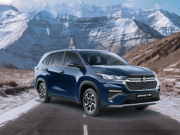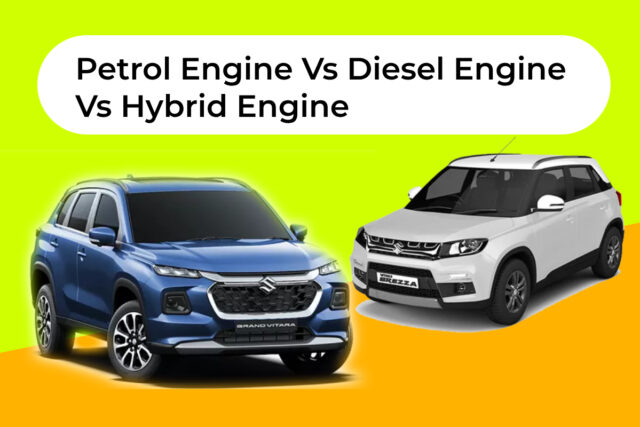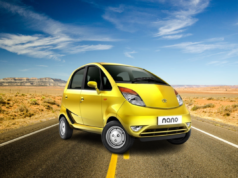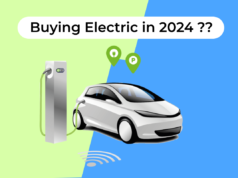Petrol, diesel and hybrid engines each bring a unique driving pleasure to the road. Petrol engines offer lively performance and are affordable, while diesel engines offer torque and fuel economy for heavy-duty work. And then some hybrids combine the best of both worlds with eco-friendly efficiency. When choosing your ideal vehicle, you need to consider the balance of speed, sustainability, and performance. Let’s unravel these options and find the engine that fits your driving dreams!
Petrol Engine
Petrol engines, also known as gasoline engines, are widely used in cars and light-duty vehicles due to their efficiency and responsiveness. These engines operate on the Otto cycle, using spark ignition to combust an air-fuel mixture. One of the primary advantages of petrol engines is their ability to deliver higher RPMs, resulting in quick acceleration and a more dynamic driving experience. This makes them particularly appealing for sports cars and smaller vehicles designed for agility.
In terms of fuel efficiency, petrol engines generally lag behind diesel engines, particularly for long-distance driving. However, they excel in urban settings where short trips and quick stops are common. The emissions from petrol engines typically contain higher levels of carbon dioxide (CO2), but they produce fewer nitrogen oxides (NOx) and particulates compared to diesel engines.
Pros of Petrol Engines
- Performance: Petrol engines typically offer higher RPMs, resulting in quicker acceleration and a more responsive driving experience, making them ideal for sporty and compact cars.
- Lower Initial Cost: Vehicles with petrol engines are generally less expensive to purchase than their diesel counterparts, making them more accessible for many consumers.
- Simplicity and Maintenance: Petrol engines have a simpler design, which often translates to lower maintenance costs and easier repairs. Routine servicing tends to be less frequent.
- Quieter Operation: Petrol engines usually operate more quietly than diesel engines, providing a smoother and more comfortable driving experience.
- Less Pollution: They produce lower levels of nitrogen oxides (NOx) and particulate matter compared to diesel engines, contributing to cleaner air in urban areas.
Cons of Petrol Engines
- Fuel Efficiency: Petrol engines generally have lower thermal efficiency than diesel engines, resulting in higher fuel consumption, especially during long-distance driving.
- Higher CO2 Emissions: While they produce fewer NOx and particulates, petrol engines typically emit higher levels of carbon dioxide (CO2), which contributes to climate change.
- Less Torque: Petrol engines tend to produce less torque than diesel engines, which can limit their effectiveness for towing heavy loads or climbing steep hills.
- Performance at Altitude: Petrol engines may lose performance at high altitudes due to thinner air, affecting power delivery.
- Rising Fuel Prices: As global oil prices fluctuate, the cost of petrol can become a significant expense for drivers, especially in regions with limited fuel options.
Diesel Engine
Diesel engines are renowned for their fuel efficiency and torque, making them a popular choice for heavy-duty vehicles, trucks, and buses. Operating on the Diesel cycle, these engines use compression ignition, which allows them to extract more energy from diesel fuel compared to petrol engines. This results in better fuel economy, particularly during long-haul journeys or when carrying heavy loads.
The increased torque of diesel engines provides significant advantages in towing and hauling applications. However, they typically operate at lower RPMs than petrol engines, which can impact acceleration and responsiveness, especially in lighter vehicles. Diesel engines also produce lower CO2 emissions than their petrol counterparts but generate higher levels of NOx and particulate matter, raising concerns about air quality and environmental regulations.
Pros of Diesel Engines
- Fuel Efficiency: Diesel engines are known for their superior fuel efficiency, providing more mileage per gallon compared to petrol engines, especially on long trips.
- Torque and Power: They produce higher torque at lower RPMs, making them ideal for heavy-duty applications, towing, and off-road driving, where pulling power is essential.
- Longevity: Diesel engines tend to have a longer lifespan due to their robust construction and lower operating speeds, often lasting longer than petrol engines with proper maintenance.
- Lower CO2 Emissions: While they produce more NOx and particulates, diesel engines emit less CO2 per unit of power generated, which can be beneficial for reducing overall greenhouse gas emissions.
- Better Performance in Cold Weather: Diesel engines typically perform better in cold weather, as they are less likely to experience issues with fuel vaporization.
Cons of Diesel Engines
- Higher Initial Cost: Vehicles equipped with diesel engines are often more expensive to purchase, and maintenance can be costlier due to the complexity of diesel technology.
- Emissions Issues: Diesel engines emit higher levels of nitrogen oxides (NOx) and particulate matter, which can contribute to air pollution and have led to stricter emissions regulations in many regions.
- Noise and Vibration: They tend to be noisier and produce more vibrations compared to petrol engines, which can affect the overall driving experience.
- Weight: Diesel engines are generally heavier than petrol engines, which can impact vehicle performance and handling, particularly in smaller cars.
- Limited Fuel Availability: In some areas, diesel fuel may not be as readily available as petrol, potentially causing inconvenience for drivers.
Hybrid Engine
Hybrid engines combine the benefits of internal combustion engines (either petrol or diesel) with electric motors to improve efficiency and reduce emissions. This dual-system approach allows hybrid vehicles to operate using either the engine or the electric motor, or both, depending on driving conditions. As a result, hybrids are particularly effective in urban environments where stop-and-go traffic benefits from the electric motor’s instant torque and regenerative braking capabilities.
One of the key advantages of hybrid engines is their ability to achieve significantly better fuel efficiency than traditional petrol or diesel engines, making them appealing to eco-conscious consumers. They also produce lower emissions, particularly CO2, which contributes to a smaller carbon footprint. Many hybrids can operate in electric-only mode for short distances, further reducing emissions during city driving.
Pros of Hybrid Engines
- Fuel Efficiency: Hybrid engines combine a petrol or diesel engine with an electric motor, significantly improving fuel efficiency, especially in urban driving conditions where stop-and-go traffic is common.
- Lower Emissions: By utilizing electric power for short trips, hybrids produce lower overall emissions compared to traditional petrol or diesel engines, contributing to a smaller carbon footprint.
- Regenerative Braking: Hybrids often feature regenerative braking systems that capture energy typically lost during braking, converting it into electricity to recharge the battery and enhance efficiency.
- Tax Incentives and Rebates: Many regions offer tax benefits, rebates, or incentives for purchasing hybrid vehicles, making them more financially attractive.
- Quiet Operation: Hybrid vehicles operate quietly, particularly in electric mode, providing a more serene driving experience, especially in urban environments.
Cons of Hybrid Engines
- Higher Initial Cost: Hybrids typically have a higher purchase price compared to standard petrol or diesel vehicles due to the complexity of their dual power systems.
- Battery Replacement Costs: While hybrid batteries are designed to last, replacing them can be expensive, and concerns about battery longevity may affect resale value.
- Maintenance Complexity: The dual power sources in hybrid vehicles can lead to more complex maintenance and repairs, potentially resulting in higher long-term costs.
- Limited Electric Range: Most hybrids rely on their internal combustion engine for longer trips, which may not provide the same electric-only range as fully electric vehicles.
- Performance Trade-offs: While hybrids excel in fuel efficiency, they may not deliver the same performance and acceleration as petrol or diesel engines, particularly in high-performance scenarios.





